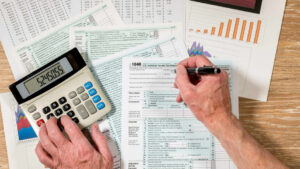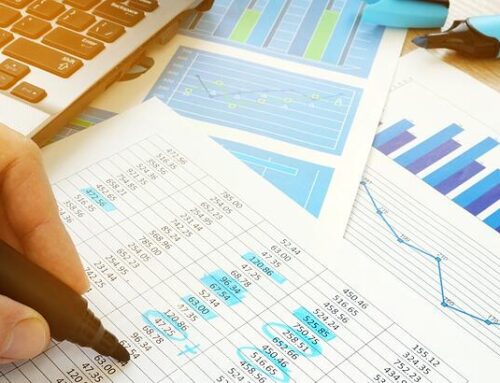Introduction
In recent years, technology has become an integral part of the accounting profession, transforming how accountants work and how financial information is managed and analyzed. From automation to advanced analytics, technology has greatly enhanced the efficiency, accuracy, and accessibility of accounting practices. This comprehensive guide explores the various ways in which technology is shaping modern accounting practices and how accountants can leverage technology to improve their work and deliver greater value to their clients or organizations.
1. Automation of Routine Tasks
One of the most significant impacts of technology on accounting is the automation of routine tasks. Modern accounting software can now automate processes such as data entry, reconciliation, and report generation, saving accountants valuable time and reducing the risk of errors. This automation allows accountants to focus on more strategic and value-added activities, such as financial analysis and planning.
2. Cloud-Based Accounting Software
Cloud-based modern accounting software has revolutionized the way accountants manage financial data. These software solutions allow accountants to access and update financial information from anywhere, at any time, using any device with an internet connection. This accessibility has increased collaboration among team members, improved the efficiency of accounting processes, and reduced the reliance on physical storage and paper-based records.
3. Advanced Data Analytics
Technology has enabled accountants to perform advanced data analytics to gain deeper insights into financial performance and trends. With the help of data visualization tools and advanced algorithms, accountants can analyze large datasets quickly and identify patterns and anomalies that may not be apparent through traditional analysis methods. This allows accountants to make more informed decisions and provide valuable insights to clients or management.
Read More: Cash Flow Management: Key Tips for Business Success
4. Enhanced Security
Security is a top priority in modern accounting, given the sensitive nature of financial information. Technology has significantly enhanced the security of financial data through advanced encryption techniques and secure cloud storage solutions. These technologies ensure that sensitive financial information is protected from unauthorized access, reducing the risk of data breaches and fraud.
5. Mobile Accounting Apps
Mobile accounting apps have made it easier for accountants to manage finances on the go. These apps provide access to financial data, invoicing capabilities, and expense tracking, allowing accountants to stay organized and productive while away from the office. Modern accounting apps have become an essential tool for accountants who need to manage their work remotely or while traveling. 
6. Blockchain Technology
Blockchain technology is increasingly being used in modern accounting for its ability to create secure, tamper-proof records of financial transactions. This technology has the potential to streamline auditing processes, improve the accuracy of financial reporting, and enhance transparency in financial transactions. By using blockchain technology, accountants can ensure the integrity and reliability of financial information, reducing the risk of fraud and errors.
7. Artificial Intelligence and Machine Learning
Artificial intelligence (AI) and machine learning (ML) are revolutionizing modern accounting by automating tasks that were previously time-consuming and labor-intensive. These technologies can analyze large volumes of financial data quickly and accurately, identify trends and patterns, and make predictions about future financial performance. AI and ML are being used in modern accounting for tasks such as data analysis, fraud detection, and risk assessment, allowing accountants to work more efficiently and effectively.
8. Compliance and Reporting
Compliance with regulatory requirements and financial reporting standards is a critical aspect of accounting. Technology has made it easier for accountants to comply with these requirements by automating the generation of reports that comply with accounting standards and tax regulations. Accounting software can generate financial statements, tax returns, and other reports quickly and accurately, reducing the risk of non-compliance and ensuring that financial information is presented in a clear and transparent manner.
Conclusion
Technology has transformed the accounting profession, making processes more efficient, accurate, and accessible. From automation to advanced analytics, technology has revolutionized how accountants work and how financial information is managed and analyzed. By leveraging technology effectively, accountants can improve their productivity, accuracy, and value to their clients or organizations, ensuring that they remain competitive in an increasingly digital world.
FAQs
1. How does automation impact the role of accountants?
Automation has a significant impact on the role of accountants by streamlining routine tasks such as data entry and reconciliation. This allows accountants to focus more on strategic and value-added activities such as financial analysis and planning.
2. What are the benefits of cloud-based accounting software?
Cloud-based accounting software offers several benefits, including increased accessibility, improved collaboration, and reduced reliance on physical storage. Accountants can access and update financial information from anywhere, at any time, using any device with an internet connection. 
3. How can advanced data analytics benefit accountants?
Advanced data analytics enables accountants to gain deeper insights into financial performance and trends. By analyzing large datasets quickly, accountants can identify patterns and anomalies that may not be apparent through traditional analysis methods, allowing them to make more informed decisions and provide valuable insights to clients or management.
4. How is blockchain technology being used in modern accounting?
Blockchain technology is used in modern accounting to create secure, tamper-proof records of financial transactions. It can streamline auditing processes, improve the accuracy of financial reporting, and enhance transparency in financial transactions. By using blockchain technology, accountants can ensure the integrity and reliability of financial information, reducing the risk of fraud and errors.



